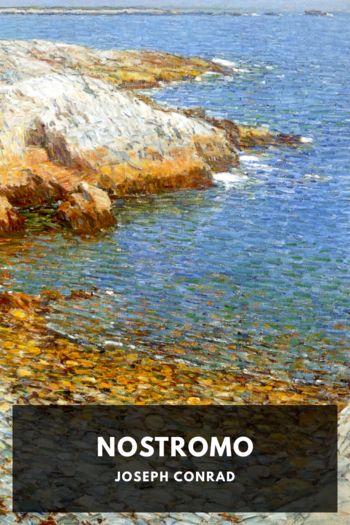Whoever Fears the Sea by Justin Fox (essential reading .txt) 📗

- Author: Justin Fox
Book online «Whoever Fears the Sea by Justin Fox (essential reading .txt) 📗». Author Justin Fox
The day was growing uncomfortably hot, so he found an open-air restaurant on the waterfront where he could sit and read. He had a handful of books and a folder of photocopies marked Lamu in his daypack. A dhow had lowered its sail and was gliding in to anchor directly in front of him. He picked up his pen and began to write.
VOICE-OVER: The Lamu Archipelago is home to a long line of nakhodas, dhow captains who have plied their trade along this coast for centuries. It is from here that we will set sail and rediscover the great city-states of the Swahili. Lamu, Manda and Pate were central to the northern trade. They had little sweet water, but one great advantage: they were islands. At one remove from the continent, they escaped the raids of inland tribes. Coral reefs protected them from the force of the ocean, and strong currents made for excellent fishing. Mangrove trees, in demand in the East, grew in abundance. Slaves and ivory were also easily attainable from the mainland.
The tide had turned and was ebbing fast, draining the shallows. One dhow crew, not wishing to be grounded, poled their jahazi into deeper water. A dau coasted in and dropped anchor. Given this craft’s flat bottom, the crew was happy to let her settle on the sand as the tide fell. The young men aboard a nearby mashua were sound asleep, not caring whether their vessel was afloat or aground. All the while, the offloading of cut stone and lime continued from the enormous belly of a motorised jahazi.
VISUAL: Slo-mo shot of a dhow. Sepia sequence of turbaned nakhoda, eyes screwed at the sun, watching the horizon. Old sea chart of the western Indian Ocean, a line is traced from the Persian Gulf to Kenya.
SOUND EFFECTS: Call of the muezzin’s dawn adhan fades into mournful Arab music, bleeds into African drums, insistent. Behind it the moan of the wind, softly. Fades to the sound of water sloshing on a beach.
CHAPTER 11
Paul fell into a comfortable daily rhythm, starting with an early-morning walk along the promenade, stopping to ask the touts and captains if there were any dhows heading for Somalia. An image of the ancient sewn boat kept surfacing in his daydreams and wouldn’t go away. He’d started to contemplate searching for the last abandoned mtepe. Despite everything he’d heard about Somalia, he wanted to push the idea of going, if not the act, as far as possible. If the journey happened to present itself, then he could weigh up the safety concerns and make a decision.
‘No, Mister, still no one is going that way,’ was the invariable reply.
Back at the inn, he had his usual breakfast of mango, papaya and toast, followed by a few hours of writing and reading on the terrace. Paul had started the first, tentative scripting of scenes. He was frequently interrupted by a man from reception, who’d call him to the television for CNN newsflashes from Washington and Pakistan, or live crossings to the clearing-up operation at Ground Zero. Fiery politicians insisted that Osama, the Taliban and Afghanistan would soon be brought to heel. To Paul, it seemed the scenario was being presented in cowboy terms: We’ve got you surrounded, come out with your hands up. As the days wore on, the crowd in front of the television grew. At times, there were up to thirty men gathered around the set, commenting loudly on developments.
When CNN or Al Jazeera became too repetitive, he’d wander the town. The main square seemed to him the epitome of ‘Swahiliness’, with its daily market, Omani fort, waterfront of dhows glimpsed through the town gate, and hubbub of conversation interspersed with the muezzin’s call to prayer. Here, men whiled away the day beneath big-leafed trees, playing endless games of bao or simply watching the world go by, fingering their amber prayer beads.
In the produce market, women in bright sarongs presided over equally bright tropical fruit. The stalls were a patchwork of colour: striped awnings, scarlet tomatoes, bowls of chillies, outsize avocados and piles of de-husked coconuts. Everything was ripe and in joyous abundance. The market was alive with chatter and wafted by the scents of dried fish, grilling meat, aromatic spices, rotting bananas and livestock dung. Shopping trolleys in the shape of long-suffering donkeys stood amidst the throng, baskets strapped to their flanks, waiting while their owners haggled for the best prices.
Next to the market, Lamu’s fort was a picturesque building with pointy towers, sawtooth crenellations and gun slits. Paul climbed to the highest ramparts, which offered vertical views of the market below. There were vignettes into Lamu’s back alleys and courtyards as well as panoramas of the harbour and Manda Island beyond. He gazed over the rooftop terraces and palm-frond makuti roofs, some scruffy and half collapsed, others a collage of rusty corrugated iron. Through the shimmering heat haze, distant palms bent to a breeze which propelled a handful of sails towards the offing.
Later in the day, he might return to his spot on the terrace and watch the passing fray, paying special attention to the water traffic. A mashua might tie up to offload crates of Coca-Cola or receive a consignment of coral blocks. He thought how little such scenes had changed over the centuries. With the slightest recalibration of the eye, the mashua could be replaced with a Persian boom, the labourers





Comments (0)